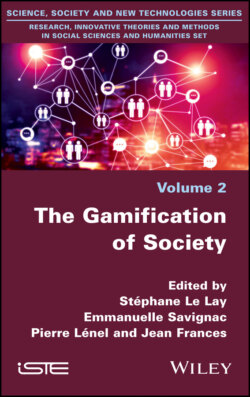Читать книгу The Gamification of Society - Группа авторов - Страница 20
1.11. Conclusion
ОглавлениеSo the challenge seems to me not to deconstruct the term “gamification”, but rather to show that it has never been constructed, except through commercial opportunities, as a slogan. We should not take slogans for reality. The world is not gameful, or playful, and the reality of what is at stake leads us to think that it is likely to be less and less so if it ever was. A world in which perhaps we play more – we already find this idea in the 18th Century with the importance taken by gambling – is not a world that has become a game. A world in which some people claim that everything is play or a game, or that everything can, even must, become so, is not a world turned into a game if we show that the so-called gamification is not a transformation of the world into a game, at most a new trick using play and game as bait, in the words of Erasmus. The goal of motivation – to motivate people to do something rather than to invite them to play – is indeed very close to a logic of trickery. Play is not aimed for its own sake but for what it would achieve from a potential player.
Beyond this logic that can be questioned, related devices and practices are proposed and must be analyzed by avoiding considering them a priori as games or play (and the question would be for whom and why). We have proposed two avenues of analysis that are not mutually exclusive and that allow us to escape the unproductive dilemma “game/play or no game/play”, suggesting moreover that there is somewhere a created frontier, whereas frontiers are constructed through collective practices (especially language). On the one hand, it is a question of considering these objects as hybrids and grasping how different dimensions (playful or not) are combined and the effects they have on practice. There is no serious game; there are hybrids between a game and other reality (pedagogical device, for example). There is no gamification but a hybridization based on the implementation of elements from games, especially video games. On the other hand, if we think of play as a frame, we need to question the effects of the devices on the frame that this can produce. Are we still in the non-literality of the playful frame? Is it a return to the primary frame or the production of a new, tertiary frame that modulates the playful frame and that would need to be explored?
1 1 This chapter is an adapted English version of a text which is based in part on the analysis of the use of the term “gamification” in the French-speaking context.
2 2 Expression present in the abstract of a paper proposed for a conference on the gamification of society.
Chapter written by Gilles BROUGÈRE.
